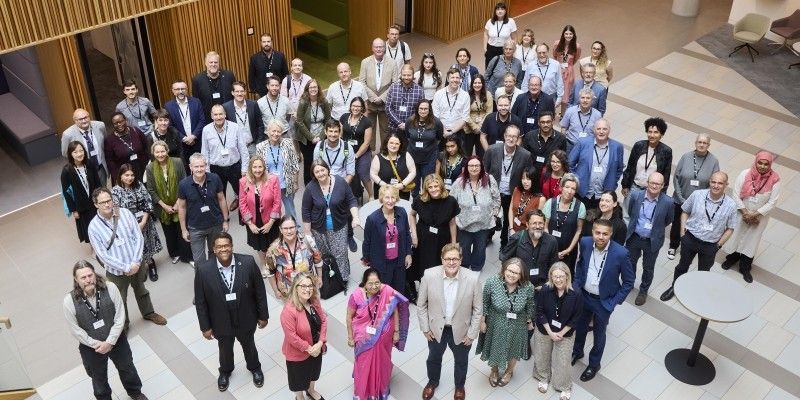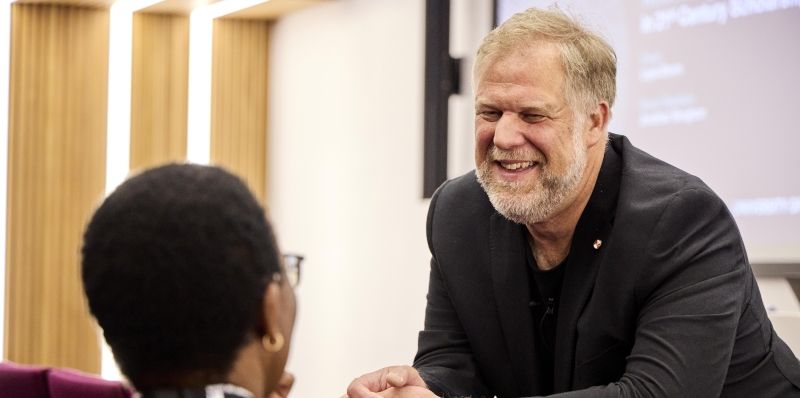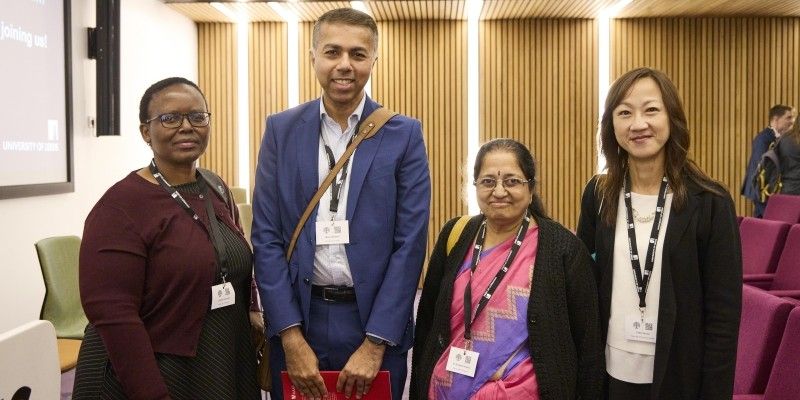
Libraries have a key role to play in fighting the misuse of information and helping people to connect in a digital age.
The University of Leeds hosted the Knowledge Futures Symposium, an event designed to explore the future of knowledge in a time of rapid technological change, global challenges and a shifting digital landscape.
Funders, partners and international guests gathered at Nexus, the University’s innovation hub, to consider what the collective future for libraries will look like.
We must act now to reduce the misuse of knowledge and focus on knowledge preservation for the benefit of future generations.
Masud Khokhar, Chief Digital and Information Officer at the University of Leeds, opened the conference. He said: “We need to think about what our collective future could be and should be; by starting these crucial conversations, we are shaping the future for a democratic and healthy society.
“We must act now to reduce the misuse of knowledge and focus on knowledge preservation for the benefit of future generations.”
Professor Jeff Grabill, Pro-Vice-Chancellor: Student Education and Experience at the University of Leeds, hosted a panel session on the intersection of knowledge, culture and the arts. The panel of experts included: Professor Christopher Smith, Executive Chair of the Arts and Humanities Research Council (AHRC), Amina Shah, National Librarian and Chief Executive of the National Library of Scotland and Professor Bridget Bennett, Professor of American Literature and Culture at the University of Leeds.
Professor Smith said: “AI doesn’t change reality; it is another artifice of humanity. AI is another version of a speaker, whose ideas need to be explored. We need to test the claims and understand. AI is one part in the ever-changing way we reconstitute the knowledge we have and create.”
Amina Shah added: “Technology has always been with libraries, but libraries help people connect. In this technology driven world, there is a danger of polarisation and the most important thing we can offer is space. This symposium offers us this space to debate, and we are at the point in time where, as a sector we need to come together.”

Jonathan Bengtson, University Librarian at the University of Victoria, said there was a shift within libraries from a focus on collections to a focus on users.
He said: “The academic library is at a critical junction in its evolution. In this new world, space is configured around experiences not collections. The library remains critical to the university as a place that can facilitate collaboration, address global issues, and promote innovation. The academic library is the connective fabric that links the community together in a way that nothing else can.”
The new KULA Library at the University of Victoria will fund library led research projects and run a microgrants research programme with a focus on collaboration, with a wide variety of partnerships with different organisations.
A second panel explored how to collaborate on our global knowledge systems with guest speakers. Rachel Bruce, Head of Open Research at UK Research and Innovation (UKRI), said: “We need to improve our collaboration around the frameworks that do exist, for example UNESCO, OECD and G7. There is far more that needs to be done to translate those into meaningful action for stakeholders. We need much more deliberate collaboration and translation across communities.”

Rachel Bruce speaking at the Knowledge Futures Symposium.
The third panel of the day was chaired by Professor Nick Plant, Pro-Vice-Chancellor: Research and Innovation at the University of Leeds, and focused on knowledge as a catalyst to transform society and humanity.
Professor Plant said: “Universities are the drivers of the knowledge economy, helping to transform society for the better. As we enter an era shaped by artificial intelligence, we are presented with unprecedented opportunities to rethink how we generate, share, and value knowledge.
“In this evolving landscape, higher education institutions and libraries have a critical role to play in safeguarding the authenticity of knowledge, especially as we face global crises such as climate change and geopolitical conflict.”

Josh Sendall, Director of Library Services at the University of Leeds, chaired a panel discussing international perspectives on knowledge.
Lindiwe Soyizwapi, Director of Library Services at the University of Pretoria, highlighted a key project about storytelling.
She said: “The University of Pretoria is working with non-governmental organisations (NGOs) and early childhood development groups to enhance literary skills. By enhancing the culture of reading and storytelling, children are encouraged to publish a book that future generations can come back and read. This helps to produce materials for the classroom.”
Further information
For more information, please contact Rebecca Hurrey at r.hurrey@leeds.ac.uk in the University of Leeds press office.
Picture credit: Simon and Simon Photography.